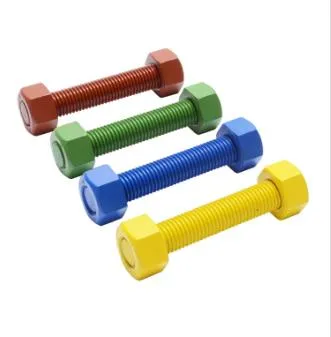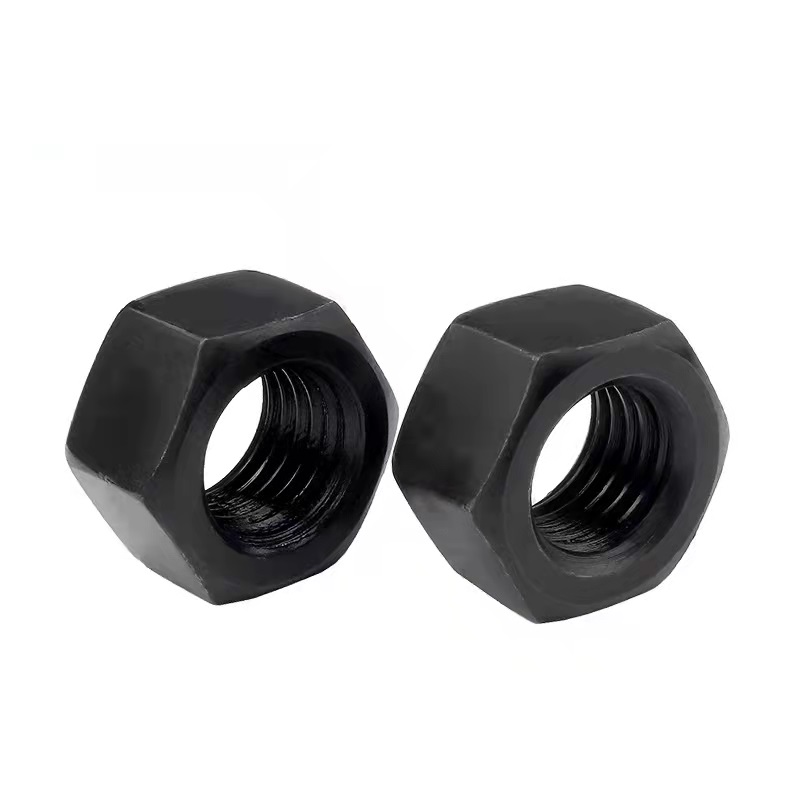1 2 stud bolt
Mar . 05, 2025 02:07 Back to list
1 2 stud bolt
Stud bolts, specifically the [1 2 stud bolt], play a crucial role in various industrial applications, and understanding their functionality, application, and benefits can provide a significant edge in product development and equipment maintenance.
The authoritativeness of [1 2 stud bolts] can be attributed to their widespread usage and endorsement by leading industry organizations. Standard-setting bodies often specify the use of stud bolts due to their proven reliability in creating secure and stable connections. This endorsement underlines their critical role in maintaining safety standards and operational protocols within industrial environments. Case studies of major infrastructure projects illustrate the critical selection of [1 2 stud bolts] to meet stringent safety and performance criteria, further cementing their authoritative status in the industry. Trustworthiness of [1 2 stud bolts] is consistently reinforced by feedback from industry professionals who vouch for their exceptional performance and reliability. Engineers and construction managers often prefer these bolts due to their long-standing reputation for excellence in demanding conditions. Their trust is built upon a history of successful application in various projects, from oil rigs to large-scale commercial buildings, where failure is not an option. Reputable manufacturers who adhere to international standards further enhance the trust factor by ensuring that each [1 2 stud bolt] undergoes quality assurance processes before reaching the market. In essence, the [1 2 stud bolt] is not merely a fastening tool but a cornerstone component that supports the broader framework of industrial innovation and safety. By consistently delivering on performance expectations, they contribute significantly to the efficiency and reliability of complex engineering systems. Understanding the nuances of their application and the rigorous standards they meet allows companies to leverage [1 2 stud bolts] effectively, ensuring that their infrastructure remains robust in the face of challenges. Investing in quality stud bolts is a strategic decision that pays dividends in reduced maintenance costs and unyielding structural security, confirming their essential role in industrial operations.


The authoritativeness of [1 2 stud bolts] can be attributed to their widespread usage and endorsement by leading industry organizations. Standard-setting bodies often specify the use of stud bolts due to their proven reliability in creating secure and stable connections. This endorsement underlines their critical role in maintaining safety standards and operational protocols within industrial environments. Case studies of major infrastructure projects illustrate the critical selection of [1 2 stud bolts] to meet stringent safety and performance criteria, further cementing their authoritative status in the industry. Trustworthiness of [1 2 stud bolts] is consistently reinforced by feedback from industry professionals who vouch for their exceptional performance and reliability. Engineers and construction managers often prefer these bolts due to their long-standing reputation for excellence in demanding conditions. Their trust is built upon a history of successful application in various projects, from oil rigs to large-scale commercial buildings, where failure is not an option. Reputable manufacturers who adhere to international standards further enhance the trust factor by ensuring that each [1 2 stud bolt] undergoes quality assurance processes before reaching the market. In essence, the [1 2 stud bolt] is not merely a fastening tool but a cornerstone component that supports the broader framework of industrial innovation and safety. By consistently delivering on performance expectations, they contribute significantly to the efficiency and reliability of complex engineering systems. Understanding the nuances of their application and the rigorous standards they meet allows companies to leverage [1 2 stud bolts] effectively, ensuring that their infrastructure remains robust in the face of challenges. Investing in quality stud bolts is a strategic decision that pays dividends in reduced maintenance costs and unyielding structural security, confirming their essential role in industrial operations.
Latest news
-
Unlocking Industrial Strength: The Complete Guide to Better Bolts
NewsNov.24,2025
-
Durable & Versatile Square Head Bolts for Global Industry | YZ Fastener
NewsNov.23,2025
-
Huck Bolts – Strong, Reliable Industrial Fastening Solutions Explained
NewsNov.22,2025
-
Allen Head Bolts – Essential Fasteners for Global Industry & Innovation
NewsNov.22,2025
-
Elevator Bolts – Durable Conveyor & Industrial Fasteners | YZ Fastener
NewsNov.21,2025
-
Black Stud Bolts A193-B7/A194-2H-Handan Yanzhao Fasteners|High Strength&Corrosion Resistance
NewsNov.21,2025
